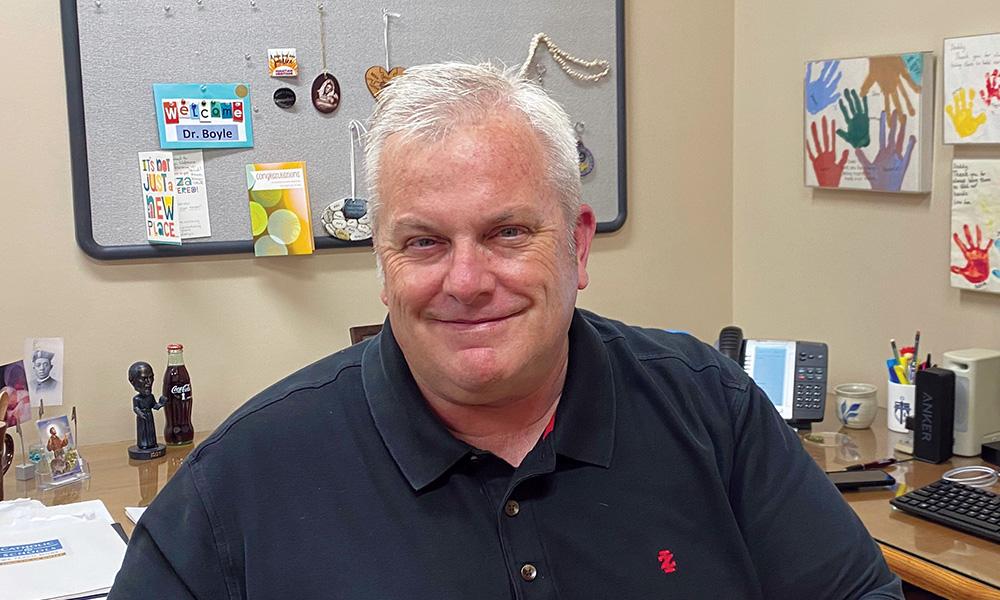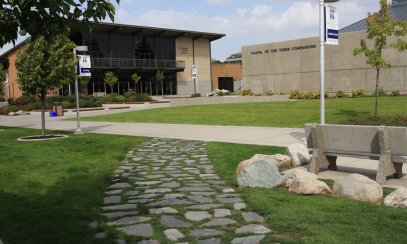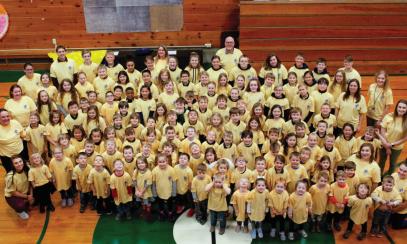
The New Catholic Schools Office Superintendent Talks About the Upcoming School Year
Carlos Briceño recently sat down to talk to Dr. Michael J. Boyle, the new diocesan Catholic Schools Office superintendent, about his hopes and some of the obstacles facing Catholic schools in the upcoming school year.
What’s your overall vision for the Catholic Schools Office?
I see my role as supporting the wonderful things that are going on in the Diocese of Joliet to make sure that we can support schools to continue that work.
What are some of the major — obviously the coronavirus is one of them — obstacles you will face in the months ahead?
I don’t think there is anything else out there than COVID-19. This is really an unprecedented time. It’s really important we make sure that schools return to face-to-face instruction in the safest possible way. That’s going to be the critical piece for me. Until we can do that, until we can regain that sense of normalcy, then we can get to the other things that need to happen.
There’s going to be a lot of people who are concerned, not only teachers but parents and some kids even. How are you trying to alleviate some of their fears?
It’s all a process. Let’s be able to get the school re-entry plans certified, so that we can get students back into buildings. But it’s also going to be supporting schools and teachers and families because we don’t know what the impact of COVID-19 has been on them. We don’t know the direct impact it might have had on kids and families or teachers. We’ve had to allay some of those anxieties and those concerns, but we also have to recognize that it’s also an ongoing concern because students or staff are going to be immuno-compromised or at risk, so we want to make sure they’re in the safest possible way too. It’s going to be fostering and supporting schools as they start to look at social-emotional learning as a real critical piece to help allay some of those fears and anxieties.
The pandemic is causing a lot of financial difficult for many people. What are your concerns about this affecting Catholic schools because obviously some people may not be able to afford to send their kid to a school?
There’s certainly going to be financial concerns. This hits economically in different places in different ways. For the first time, some families who have never experienced difficulties with economics are facing difficulties. We have to be able to look at all those different levels. Schools have been working really hard to find additional monies and raise different monies to support the tuition. The Catholic Education Foundation has been really aware of that and trying to work on that. Ways we can work with families to be able to support them in this economic transition is going to be critical.
There are a lot of kids who don’t go to Catholic schools but participate in religious education programs. What kind of synergy do you all hope to have with religious education programs?
In multiple places around this country, there can be so many different siloes within the Church. Everyone works within their silo, and they forget that someone right next to them is working on the same kinds of things. We lose some things. We’re not really living up to our potential as Church, our call to community and communion, but if we’re not practicing community and communion in our own working practices, then are we really modeling what we’re called to do? Simple things in terms of looking at places of overlap, being able to reach out to work with people who are involved in similar kinds of ministries is a very important thing to do — not because it’s more efficient and more effective, but it is also modeling what we’re called to do, and that’s to be in community and communion with each other.
Bishop Emeritus R. Daniel Conlon issued a pastoral letter in 2018, seeking a missionary discipleship mindset in the diocese. How do you hope that Catholic schools understand that mission and that what people are teaching and the mindset is one that young people are learning how to be missionary disciples?
All too often, people have a misconception of what Catholic schools are. They view it as a private school. It’s not. We have a very critical dual function. It’s about academic excellence, but it’s also about Catholic identity. If we can’t fully embrace our Catholic identity, then we’re really not a Catholic school. A beautiful thing about Catholic schools is where we are called to encounter the risen Christ. As Catholic schools, we need to be able to make those opportunities available. Where are those places where I can see the face of God in my neighbor? In the kid in the lunchroom? When we can start to do that, that is starting to take those first steps. It’s developmentally appropriate for young kids; let’s view and see God in other people first, and then we can live toward our call to missionary discipleship.


